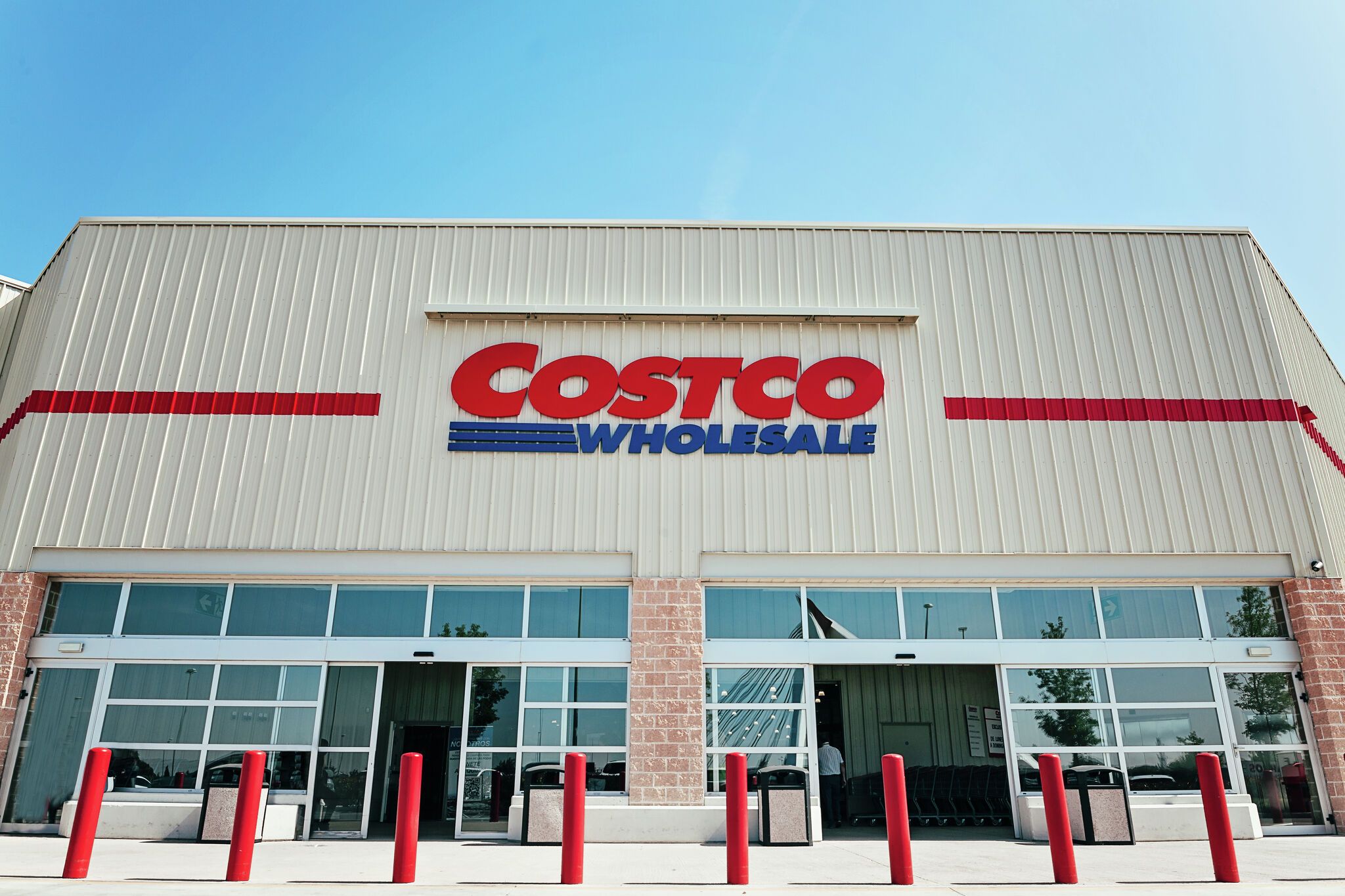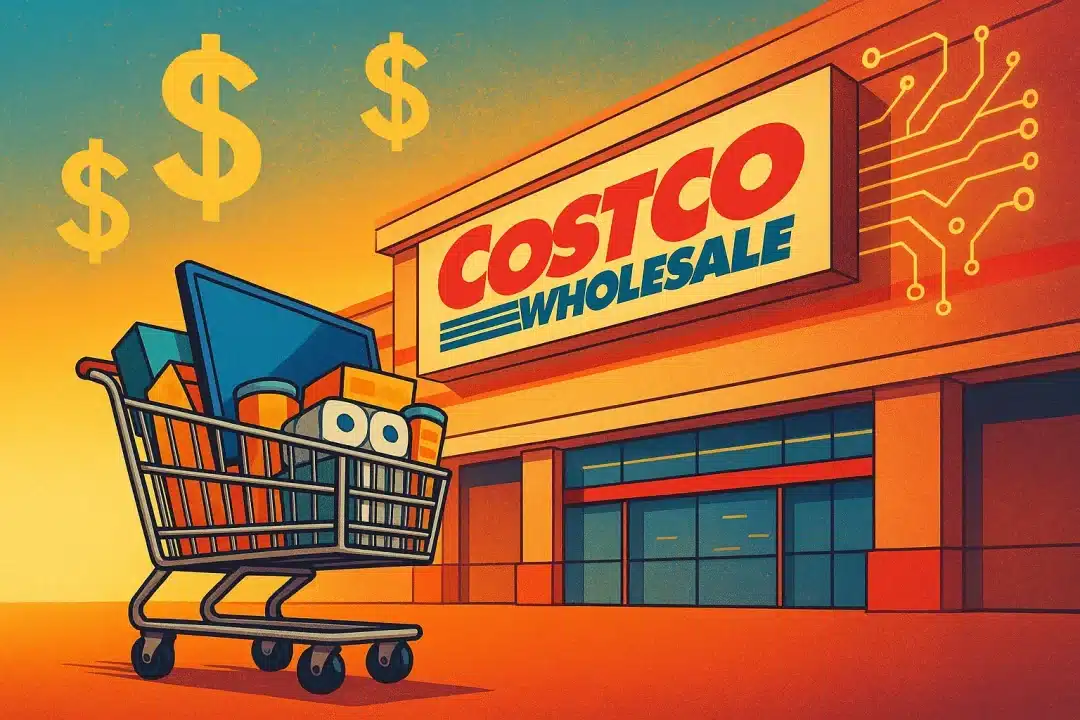
Costco, a global wholesale titan, continuously innovates to enhance operations, elevate customer experiences, and streamline its supply chain. In our tech-driven world, Artificial Intelligence (AI) has emerged as a transformative force. This article explores Costco’s fascinating AI applications, illustrating how this giant redefines shopping and maintains its competitive edge.
Costco’s unique financial framework provides an exceptional launchpad for AI. Its profitability primarily stems from annual membership fees, generating a staggering $4.8 billion in fiscal 2024. This stable, high-margin revenue frees Costco from intense transactional margin pressures, allowing capped markups at a low 14-15% on products. This strategy delivers extreme value, sharply contrasting with typical retailer margins of 20-50%.

This architecture creates a powerful, self-reinforcing flywheel. Membership fees subsidize aggressive low prices, driving high sales volumes and unparalleled member loyalty. Stellar renewal rates, 92.7% in the U.S. and Canada and 90% globally, secure future fee revenue. This cycle enables continuous investment in value, perpetuating growth and loyalty, a dynamic AI can significantly amplify.
Costco’s disciplined inventory approach further strengthens its AI foundation. While typical retailers stock tens of thousands of SKUs, an average Costco warehouse offers only about 4,000 distinct products. This curated selection reduces “choice anxiety” for members and streamlines all operations, from inventory to supplier negotiations. Concentrating immense purchasing power on limited items yields unparalleled leverage and enables its low-price strategy. The “no-frills” warehouse design minimizes overhead, with savings passed directly to members. This business model acts as a powerful data purification engine for AI.

Costco’s operational mastery is deeply rooted in AI for inventory management, directly benefiting members with consistently well-stocked stores. AI-powered automated replenishment systems analyze historical sales, seasonal trends, and customer preferences to predict demand. This foresight allows precise stocking, minimizing frustrating stockouts and costly overstock situations. The outcome is improved inventory turnover and reduced carrying costs, ensuring a seamless shopping experience.
Real-time inventory tracking is another critical AI application, dynamically monitoring stock levels across all locations. Advanced AI algorithms provide instantaneous insights into product availability and replenishment needs. This visibility empowers swift response to fluctuating demand, ensuring products are always available while expertly avoiding excess inventory. This streamlined, AI-bolstered supply chain contributes to significant cost savings and reinforces Costco’s reputation for efficiency and customer satisfaction.

AI also plays a crucial role in Costco’s sustainability by reducing waste, especially for perishable goods. By intelligently analyzing sales patterns alongside expiration dates, AI accurately predicts which items are likely to expire soon. This enables targeted promotional strategies to move inventory swiftly before waste occurs. This proactive approach minimizes financial losses and significantly contributes to global sustainability by reducing food waste in landfills.
Costco enthusiastically leverages AI to elevate customer experience, fostering a personalized and engaging shopping journey. Sophisticated AI-driven analytics provide invaluable insights into shopping behaviors and preferences from extensive customer data. This deep understanding enables targeted promotions and tailored recommendations. For instance, an organic products buyer might receive special offers on similar items, boosting satisfaction and repeat purchases.

To further enhance service, Costco intelligently deploys AI-powered chatbots and virtual assistants, available 24/7. These tools assist with inquiries, from product availability to order tracking, providing instant responses to common questions. This dramatically reduces wait times, transforming the shopping experience. Members appreciate quick support, focusing on finding the best deals, as AI seamlessly ensures every member feels valued.

AI-driven analytics also profoundly influence Costco’s ability to understand customer sentiment. By processing vast customer feedback and reviews, AI uncovers insights into what members cherish and areas for improvement. If feedback highlights a need for more organic options, Costco swiftly adjusts its offerings. AI also informs store layout changes based on customer behavior, ensuring a more intuitive journey. This continuous feedback loop keeps Costco intimately connected with member needs.
AI empowers Costco to leap ahead through highly effective sales forecasting and insightful data analytics. By meticulously analyzing vast historical sales data and intricate patterns, AI predicts future market trends with remarkable accuracy. This foresight allows exceptionally informed strategic decisions concerning optimal inventory levels, impactful promotions, and successful new product launches. Anticipating customer demand helps optimize stock, ensuring popular items are always available, increasing sales and customer satisfaction.
At the core of Costco’s strategic data advantage lies its unparalleled “Household-Centric Data Ecosystem,” an asset more valuable and defensible than nearly any competitor. Unlike fragmented individual-centric data, Costco’s is meticulously organized around the household unit. Membership signup collects comprehensive personal information, and data extends beyond core merchandise to ancillary services like Costco Travel, pharmacies, optical centers, and gasoline stations. This provides a uniquely holistic, 360-degree view of a household’s complete discretionary and non-discretionary spending.

This household-level data furnishes a clearer, more potent signal of collective consumer demand. With 79.6 million paid household memberships as of fiscal Q3 2025, Costco has a massive, stable base for longitudinal analysis. A typical Costco cart, filled with items like a 48-pack of toilet paper, children’s vitamins, and dog food, represents a household’s consolidated needs, reflected in its high average transaction value ($115 vs. Walmart $70). These large, multi-category baskets are a goldmine for AI models, deciphering product affinities, consumption cycles, and latent household needs.
Costco actively transforms this data into actionable intelligence, generating “inferences about your likely preferences or other characteristics” through analysis. This foundational machine learning groundwork is evidenced by their recruitment of Data Scientists to build AI/ML models for forecasting, marketing, and supply chain. This data-centric approach builds a proprietary “Household Graph.” Linking multiple cardholders and their collective purchases allows AI to analyze diverse baskets (e.g., diapers, teenage apparel) to infer household composition and life stage with high accuracy. This enables predictive modeling anticipating future household needs, offering more sophistication than individual personalization.
Costco’s commitment to operational excellence is further amplified by AI’s intelligent application across various internal functions. In workforce management, AI tools optimize scheduling by analyzing factors like sales patterns, anticipated foot traffic, and employee availability. This ensures the optimal number of staff are on hand during peak shopping hours, improving labor efficiency as employees focus intently on serving members. Superior workforce management also directly reduces labor costs, critical for upholding Costco’s low-price promise while delivering outstanding customer service.




